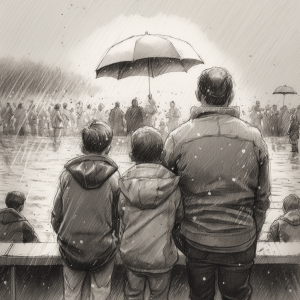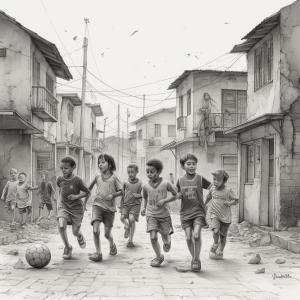Let me begin by offering some general advice to coaches.
- Keep in touch with modern methods and science and pass them on to your players. At all times emphasise correct skills, particularly to juniors.
- When coaching young kids, introduce the basic skills gradually always placing emphasis on fun and enjoyment. Boys have sharp reflexes but sometimes are slow to mature and are slow to absorb instruction. Never allow young players to become bored or scared of training. It always helps when the coaches are patient and cheerful, emphasizing the fun aspect of the game.
- Correct and eliminate errors or bad habits at an early age. If problematic areas of a young player are not fixed at an early age, they will become a bad habit that might remain with them for the rest of their careers.
- Balance is an important trait and skill that must be mastered from a young age. A soccer ball is not required to demonstrate this.
- Plan your training routines before you begin training. Always keep training simple and use the correct terminology when coaching the young.
- Never criticise or discourage young players for being different or unorthodox. It is these players that will go on to be superstars.
- Always be constructive and never abusive. Young players are easily upset and should never be made examples of in front of their friends or team mates.
- Create a team spirit and emphasize team work. This improves all round performance and without it, no team can succeed.
- Have plenty of soccer balls at training. No child should be left without a soccer ball, the soccer balls do not need to be expensive- but should be the appropriate size for a particular age group.
- Players should be dressed in proper attire and should be fitted with comfortable boots. Also your presentation as the coach is important. You must be tidy and present yourself as professional to maintain presence and respect over your team. The young athletes are easily pleased, its the parents you need to win over.
- Train players in certain groups based on their strengths and weaknesses. Also divide and train players according to the positions they play in. Eg. right-side players, left-side players, defenders and attackers.
- Ensure your players are relaxed and comfortable at training and on match day. Players must look up to you as the coach without fear and the relationship based on trust.
- Always keep all the players occupied. Failure to do this will result in players drifting off and not paying you any attention. Also mix up training to avoid continuous repetition because the players will easily get bored.
- Encourage individual practice. Emphasize the benefits of training and focus on the benefits of mastering skills.
- Do not repeat something over and over again. If the players are struggling with an exercise, switch over to an easier exercise to help boost morale and confidence.
- Always encourage and praise good work/training. Always be patient, understanding and professional.
- Maintain discipline within a peaceful atmosphere. No young player should ever be subjected to abuse or fear.
- At the end of the day you must examine your own credibility’s. The one person you cannot bluff or cheat is yourself. The greater knowledge of the game you have, the better the chance you have of becoming a great coach..
So what makes a great coach? I’ve just skimmed the surface here, but a great coach should be able to induce a player to learn every skill, step by step no matter how difficult. Then, in match play, the player should have the confidence to employ those skills learnt at training without thinking.



Leave a Reply